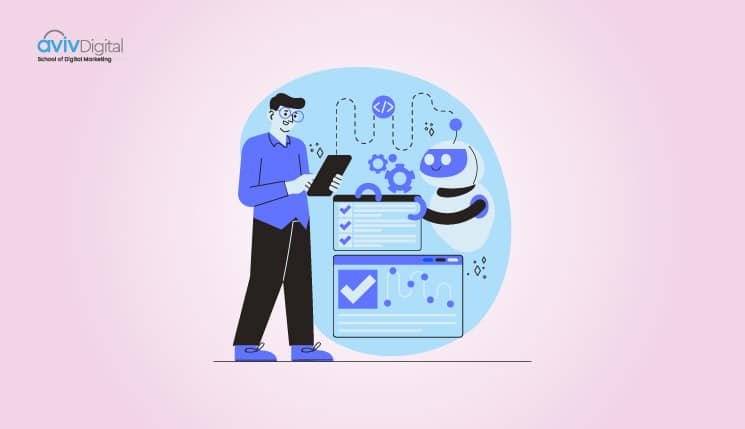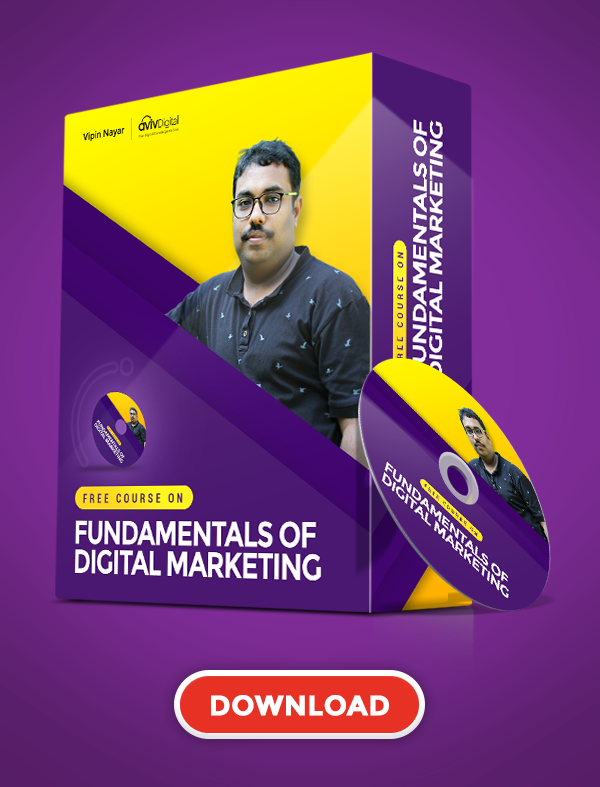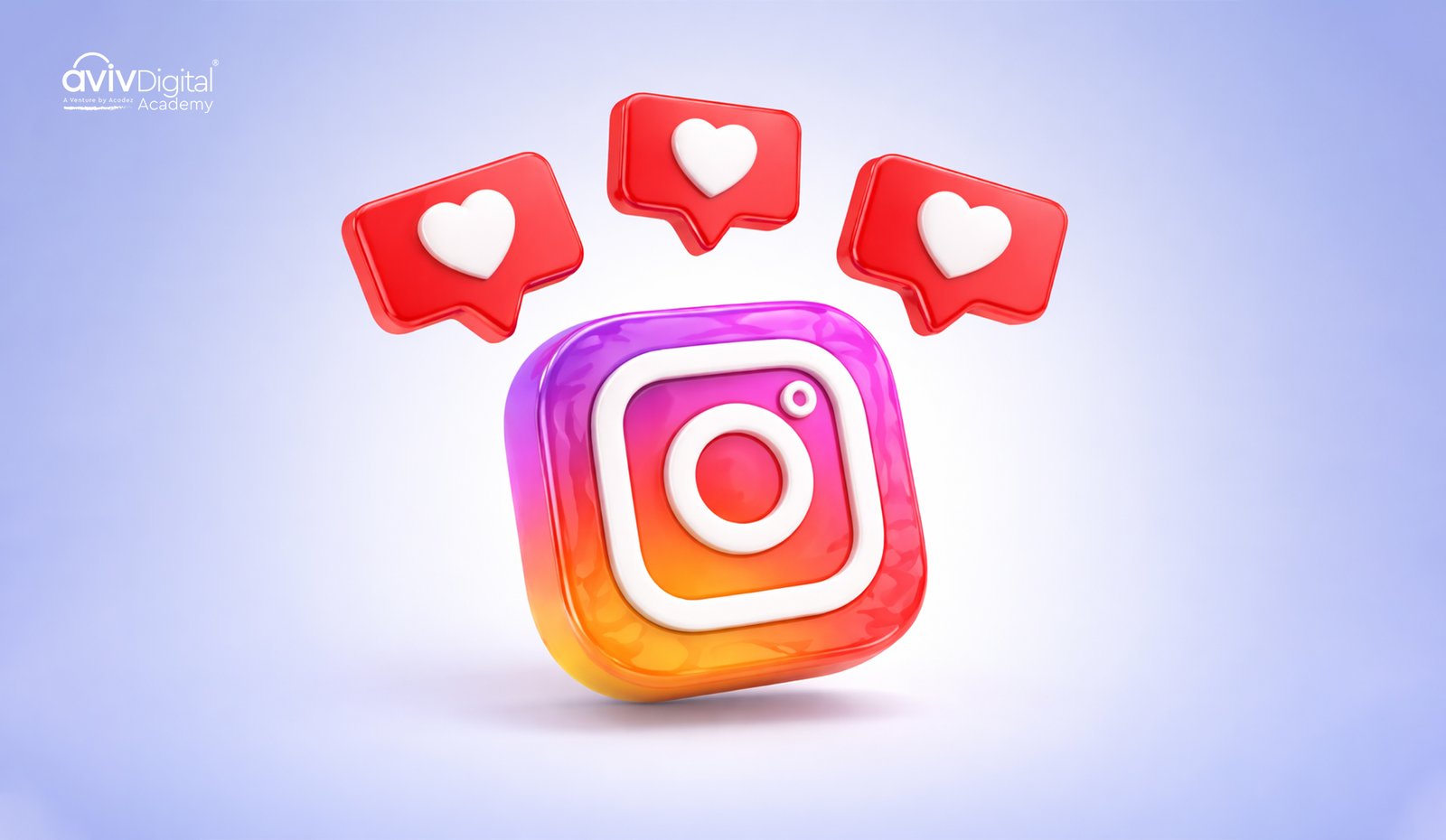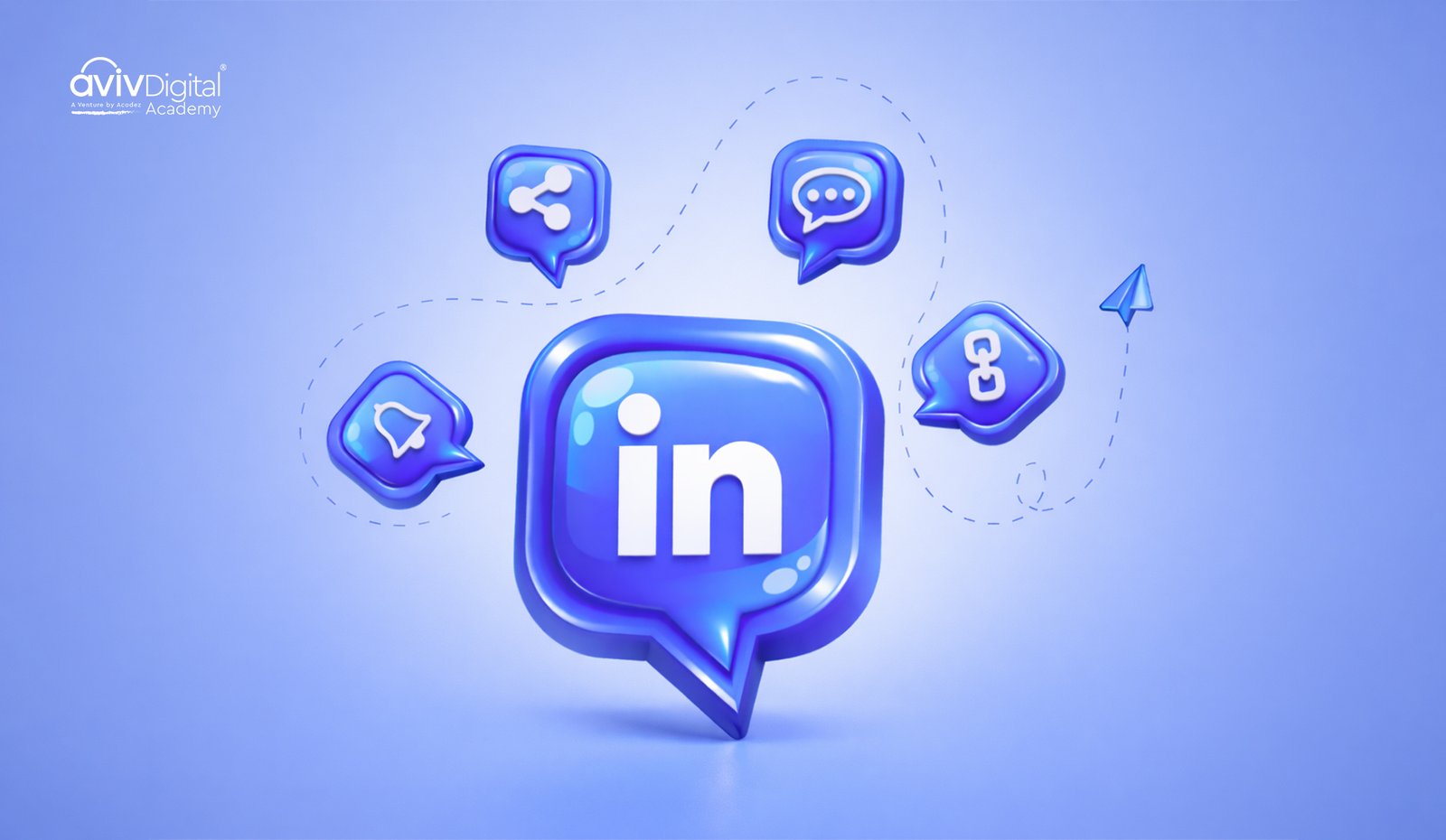
Advancements in AI and related technologies have been transforming our lifestyles significantly. The marketing industry, specifically the digital advertising channels, is known for its dynamic character and is expected to embrace AI with all of its challenges and advantages.
Machine learning and deep learning are the factors that directly influence marketing methods under artificial intelligence. They have reshaped the efficiency and automation of tasks of marketers in every sector, like data analytics, content marketing, and personalization in the process.
Calicut has been passing through its transformative stage of advertising in recent years. Timely adaptation to rapidly changing technologies is challenging, especially in competitive industries.
Artificial intelligence can be defined as the ability of machines to perform tasks that usually require human efforts, like learning, problem-solving, and decision-making. Businesses can utilize these machine skills to understand customer behaviour, automate marketing tasks, and personalize campaigns for improved engagement and results.
Continue to read to understand how to use the upcoming changes in business and marketing methods and to be prepared for them.
Personalized Customer Experiences
AI and ML technologies help marketers gather and analyze vast amounts of data on consumer behaviour, preferences, and engagement patterns. Deep learning, a subfield of machine learning, uses complex artificial neural networks inspired by the human brain to learn from the data to sort out conclusions.
Businesses can leverage these conclusions to create highly personalized marketing campaigns, tailored product recommendations, and customized content to reach out to local audiences
The latest statistics show that 60% of consumers become repeat customers after a personalized shopping experience. AI-tailored advertisements to the profiles of targeted customers show the products they are genuinely interested in, making your efforts more rewarding.
AI-driven personalization creates deeper connections with customers, creating loyalty and trust. Understanding and providing to the individual needs and preferences, business can boost management, conversions, and overall customer satisfaction.
Semantic Search
Unlike traditional search methods, which focus on matching keywords, semantic search, backed by AI and ML, understands the intent behind the search query. This forces marketers to create content and target campaigns that truly understand user needs and preferences for improved engagement and conversions
Understanding user intent includes using the location and context of user to prioritize locally relevant results. Businesses need to put effort into optimizing their digital presence with location-specific information and content to ensure they appear in search of Calicut.
Search algorithms look for relationships between words and concepts rather than individual keywords. To improve organic search needs, use longtail keywords and natural language phrases to align content with how users naturally express their needs.
Content-Oriented Marketing
Analyze audience data to identify trending topics and content formats that are relatable to your audiences. This data-backed approach ensures the content aligns with user needs and drives higher engagement.
AI tools are also efficient in content creation and optimizing content for search engines and audience preferences. Natural language processing (NLP) technologies like Chat GPT and Jemini are already popular among content creators to generate relevant content. Machine learning algorithms can analyze the performance of various content types, which leads to more engaging content strategies that capture the attention of the audience. You can understand content performance, SEO improvements, readability, and user experience through various AI-backed tools.
A/B Testing
Also called split testing or bucket testing, is a randomized experiment of comparing two or more variations of webpages to determine which one is preferred by customers. A/B testing remains the cornerstone of data-driven optimization. AI automates repetitive tasks like setting up tests, analyzing data, and suggesting new variants.
Advanced AI/ML algorithms can handle complex multivariate tests with numerous variables. This provides a richer understanding of user behaviour and optimization across multiple elements. AI can predict which test variations are likely to perform better for specific user segments.
Machine learning can continuously analyze ongoing tests to automatically adjust elements in real time. This continuous process ensures digital marketing strategies remain user-centric and effective. You can ensure more efficient use of advertising budgets and higher ROI.
A/B testing provides empirical evidence needed to train AI and ML models, and it executes more personalized, efficient digital marketing campaigns.
Enhanced Customer Service
AI-powered chatbots and virtual assistants have revolutionized customer service in online marketing. They provide instant support even outside business hours, answering FAQs, solving basic issues, and directing customers to relevant resources.
AI is also capable of analyzing customer data and purchase history to offer personalized recommendations and solutions. This can provide an enhanced service experience, build trust, and demonstrate genuine care for individual needs.
Excellent customer service transforms into a positive brand image, improving online reviews and social media engagement.
Customer service interactions provide valuable data about the needs, preferences, and pain points of customers. This can further help in personalizing marketing campaigns, strengthening brand perception, and creating effective strategies.
Research shows that 40% of internet users prefer to interact with a bot than an agent. Although chatbots can’t deal with every conversation, the increasing efficiency of interactive technologies ensures that chatbots will rule future customer care services.
Ad Targeting
Traditionally, ad targeting methods relied on demographic interests and basic online behaviours. Although it was effective, this often resulted in broad audience segments and potentially wasted ad spend. The AI/ML algorithms analyze vast amounts of user data like search history, browser behaviour, social media interactions, etc. This creates highly detailed customer profiles and enables marketers to target the right audience at the right time.
Businesses can target ads to individuals based on their preferences, needs, and even predicted future behaviour. For eg, restaurants in Calicut can utilize this to personalized food recommendations with individual preferences and past orders.
AI/ML algorithms can continuously analyze ad performances and adjust targeting parameters in real-time. This ensures the campaigns reach out to the right audience at the right time, maximizing the impact of your promotional efforts.
Hyper-targeted ads lead to better engagement and conversions, which can save spending money on irrelevant impressions and optimize ad budgets. Through precision targeting, personalization, predictive analytics, and cost efficiency, AI and ML enable effective advertising more than ever before.
Lead Scoring
Lead scoring defines the process of assigning scores to each lead based on attributes and behaviours that show their potential to engage in future purchases. This technique allows businesses to personalize marketing efforts towards leads with a higher propensity to buy.
Traditionally, lead scoring relied on assigning points based on pre-defined criteria like demographics, website visits, and form submissions. This process used to be manual and subjective, leading to inconsistencies and inefficiencies.
The ability of AI/ML algorithms to analyze vast amounts of data points (website behaviour, online interactions, social media engagement, etc.) to create dynamic and objective lead scores.
AI can predict the probabilities of lead conversion, taking into account their behaviour, interests, and online interactions. These scores are continuously updated based on new data and up-to-date information on each lead potential.
Email Marketing
E-Mail Marketing remains a major strategy in digital marketing for effective communication. New technologies enhance various aspects of email marketing, making campaigns more effective, efficient, and personalized.
Marketers can personalize e-mail content that resonates with each recipient, including tailored product recommendations and content based on user behaviour. This can result in improved engagement rates, conversion rates, and customer satisfaction.
Effective segmentation is inevitable for success in e-mail marketing. AI and ML algorithms can segment email lists more accurately than ever before. They analyze a wide range of criteria, including behaviour, demographics, engagement history, and purchase patterns.
AI tools also help in optimizing the content of emails themselves from the subject line to body text. By analyzing what content performs best across different segments of audiences, these technologies can suggest content that is more likely to engage and convert. This includes the ability to test different variations of email content (A/B testing) to continuously refine and improve e-mail marketing strategies.
AI-Based Image/Video Recognition
AI-powered image/video recognition has revolutionized digital marketing in various aspects. The AI is improving its ability to analyze and understand the content of images and videos to recognize objects, scenes, and emotions.
These technologies can personalize content recommendations, targeted ads, and interactive experiences and thus enhance user engagement. Precise targeting based on visual content preferences ensures ads reach the right audience, maximizing return on investments.
Social media platforms can use image and video recognition AI to analyze content. This enables better targeting and relevance of content users interact with. Digital marketers can utilize this place for ads within the most relevant content context, improving the effectiveness of social media campaigns.
Conclusion
The results of integration of AI and machine learning (ML) into digital marketing in Calicut are yet to be seen in the coming years. These innovations offer advanced opportunities to enhance customer engagement, streamline operations, and achieve higher conversion rates and ROI, contributing to the growth of digital marketing.
New technologies provide tools to anticipate customer needs more deeply to deliver tailored content and recommendations. This brings better outputs in these small tasks and allows application of human expertise to other complicated tasks.
Different from past innovations in technology, AI and ML can transcend language barriers, tailoring the experience to a diverse audience. This inclusive development compels everyone to be part of the growth, fastening the journey to the dream of global village.
However, ethical considerations, responsible data use, and human management are crucial for navigating the AI-powered landscape. Being part of the fast-growing digital landscape saves businesses from later regrets, especially in this competitive world.
Aviv Digital is one of the leading Digital marketing course in calicut. We offer a wide variety of globally recognized certification programs that include SEO, SEM, SMM, Email Marketing and Inbound Marketing courses. For more details, Contact us at: +91 8156998844







